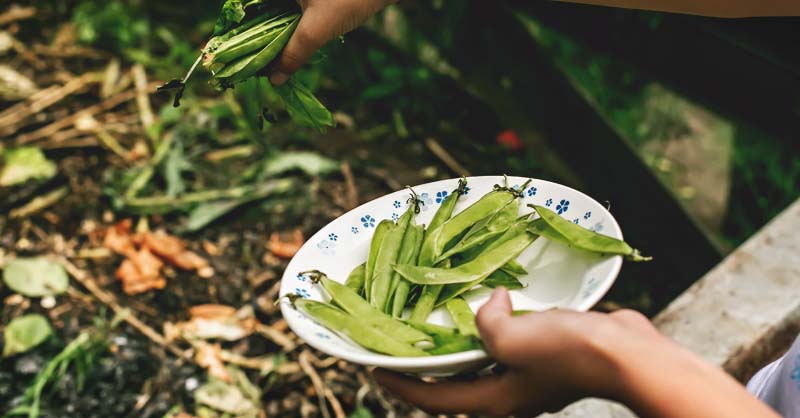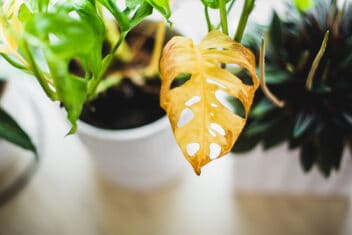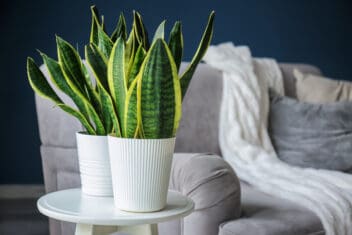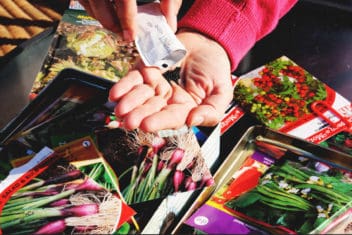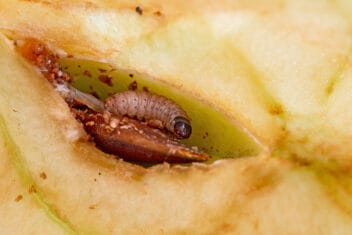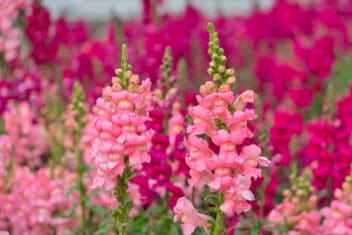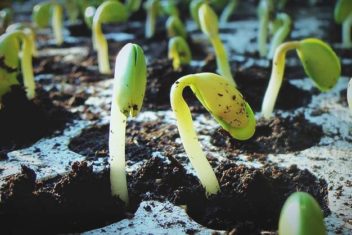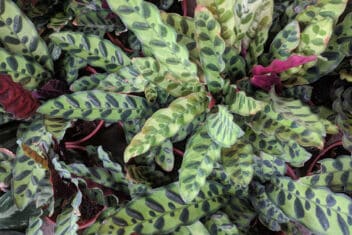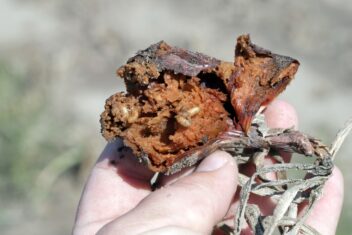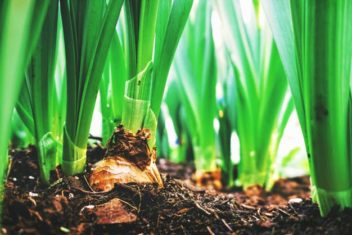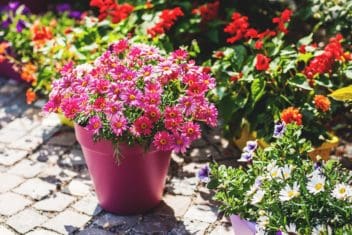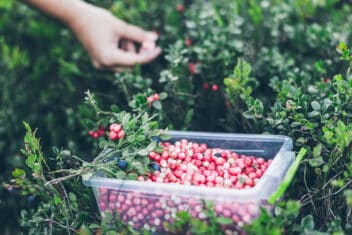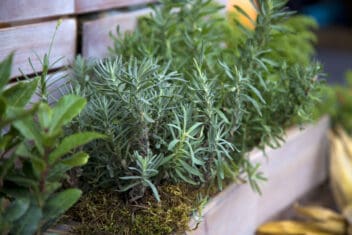Composting is a crucial part of having an organic garden, and it’s a smart way to decrease your carbon footprint – and who doesn’t want to do that? Having a compost pile is one of the most powerful things that you can do to create a sustainable lifestyle, even if you don’t have a garden. If you’re interested in having compost, the most important thing is to learn what not to compost and what is safe.
While starting a compost can seem intimidating, you can breathe a sigh of relief – it’s easy. There are dozens of things that you come in contact with each week that are totally safe for your compost bin, and the things you can’t use are pretty logical once you know what to watch for.
You can technically compost almost anything that was once a living plant, but some things are better left out of the compost for one reason or another. Understanding the dynamics and makeup of compost is vital for success, so let’s get started.
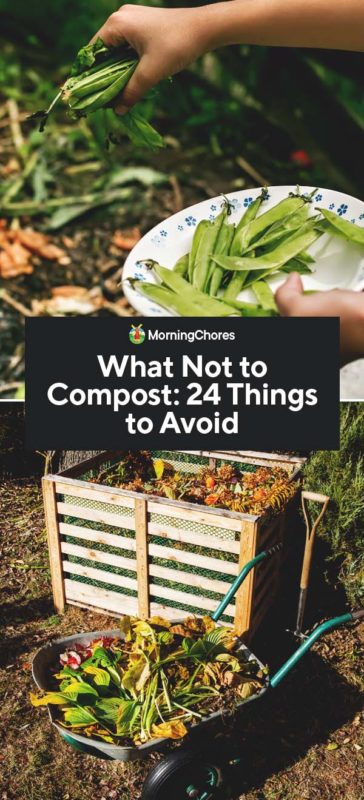
Why Are Some Things Not Safe for Composting?
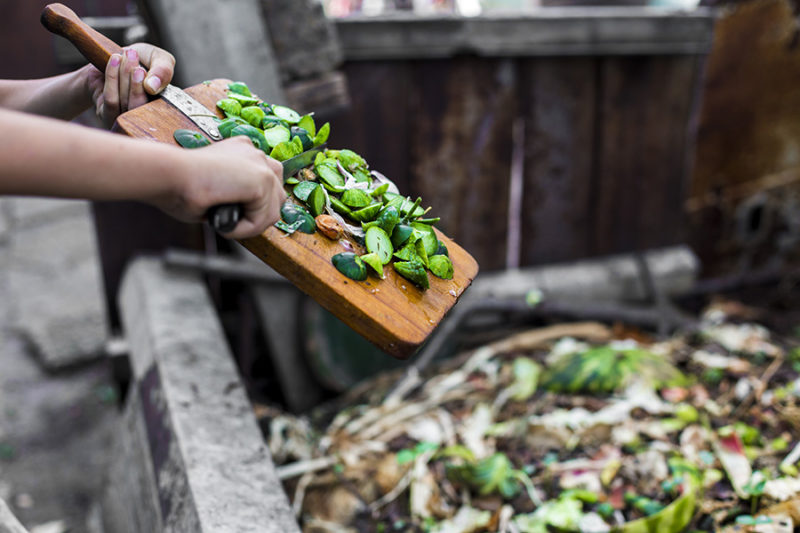
To create a proper compost, you have to keep the elements balanced. Composting requires a balance between green and brown materials. Green materials, such as grass clippings, are rich in nitrogen, and brown materials, such as dried leaves, have plenty of carbon.
Aside from balanced materials, composting requires objects that can be broken down in a specific amount of time. Whenever you go to spread the finished compost over your garden beds, you don’t want to find pieces of decomposing food or large branches still whole.
On top of that, we have to worry about adding diseases or introducing pests to our compost. If you add something that is diseased with bacteria or fungi, it could spread through your compost bin. Then, when you spread the finished compost over your garden beds, you could infect the whole area!
Plus, you don’t want to encourage raccoons, flies, insects, or other pests to visit your compost. It’s one of the reasons why some neighbors become frustrated with compost near their property. Some ingredients encourage unwanted visitors, like rats and mice, to the neighborhood.
That’s why knowing what not to compost is vital. Without this knowledge, you could ruin your entire finished compost or, even worse, infect and kill next year’s worth of crops.
What Not to Compost
1. Dog and Cat Poop
Some manure is safe to add to your compost, providing additional nutrients that help your plants grow. Examples of safe manure include horse, cow, chicken, and rabbit poop. These droppings are full of organic matter that enriches your soil.
Poop from dogs and cats isn’t the same. You should avoid any feces from carnivorous animals. The waste often contains microorganisms and parasites that can infect the crops you’ll eventually eat.
If you do want to compost dog poop, you have to process it separately from your typical compost pile. You can even purchase special composters just for pet waste. Then, you can use this finished compost on non-food crops.
2. Citrus Peels
I know; you’re probably thinking, “aren’t all fruit and veggie scraps are safe for my home compost pile?” The answer to that is citrus peels are sketchy additions.
Citrus peels have natural chemicals and an acidity level that kills worms and other microorganisms. At the same time, the chemicals might slow down the decomposition process.
Another problem is that citrus peels take forever to decompose. Think about how long several cups of citrus peels would take to break down in your compost pile!
Adding these items occasionally to your pile isn’t a huge deal, but you don’t want to do it all the time. Also, if you practice vermicomposting, citrus peels are a big no-no. They hurt your worms!
3. Tea Bags & Coffee Filters
Coffee grounds and tea leaves go in the heck yes column of safe ingredients for composting. These items have high levels of nitrogen, potassium, and phosphorous, which are all critical for plant growth.
While those items are safe, coffee filters and tea bags are not good additions to your pile. The bags and filters usually contain synthetic fibers that don’t break down in your compost pile as quickly as other ingredients. That means you’re introducing chemicals into your soil that might not be safe.
Ideally, should remove the leaves and grounds before tossing them into your bin. The only way that it’s safe for you to compost tea bags or coffee filters is if you are sure they’re made from natural materials, such as cotton or hemp.
4. Bread
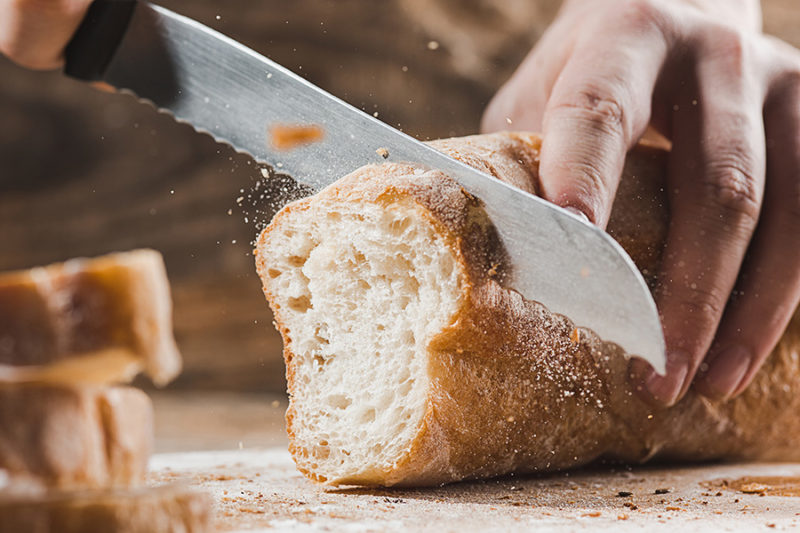
While the components in bread might add nutrients to your finished compost, the problem lies in the fact that the smell may draw pests and insects. Tossing leftover toast is the perfect way to attract raccoons and other hungry critters to your yard while also creating a smell that no one in the area will appreciate.
A little bread now and then won’t hurt your compost, but a few crusts are different than a loaf of bread every week.
5. Dairy Products
Anything that comes from milk should never be added to your compost. That includes things such as yogurt, cheese, and ice cream. Not only can the smell from rotting dairy products attract pests, as things such as yogurt sit in the bin, they’ll spread diseases.
6. Eggs
Eggs are another item that attracts pests. That said, if you have the appropriate mix of green to brown in your compost, you can usually get away with adding a few eggs to your bin.
7. Rice
Rice, too, falls in the category of food that might seem acceptable in compost at first glance, but think again. It fosters bacteria that can be harmful to your compost. Both cooked and uncooked rice should be tossed in the garbage (or fed to your livestock).
8. Onions and Garlic
If you toss in a few onion peels, I promise you won’t ruin your compost, so don’t run out worrying. But onions and garlic have a chemical and pH balance that is harmful to the worms working hard to break down your compost pile. Leave onion and garlic waste in the trash.
9. Glossy or Coated Paper
You can add many different paper products, such as newspapers, old paper towels, tissues, and shredded cardboard, to your compost piles. After all, paper does come from trees.
That said, not all paper is created equal. Many types are treated with a plastic-like coating, creating a bright and glossy look. For example, magazines contain glossy and coated paper. The chemicals used to cover the paper contain toxins and aren’t appropriate for a compost pile.
10. Sticky Labels
Have you ever noticed all of the different sticky labels on fruits and vegetables? The sticky labels may serve a purpose, to help you check out easier at the grocery store, but they’re usually made of food-grade plastic or vinyl. This material doesn’t biodegrade, and those little labels are easy to miss. That means you need to keep an eye out when you’re tossing fruit scraps into your compost pile.
11. Fish & Meat Scraps
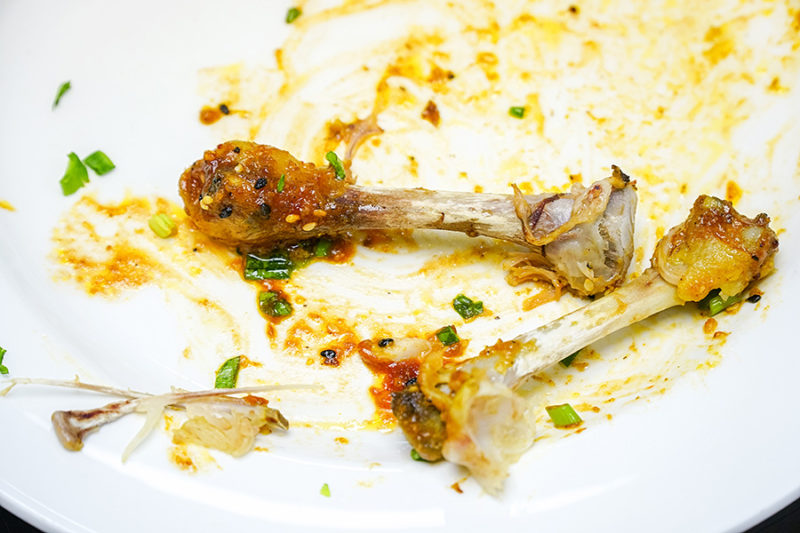
Any product that comes from an animal is a no-no, and that includes any meat. They decompose fine. Native Americans historically added fish scraps to their crops to help grow corn and other veggies. Fish and meat are organic and add nutrients to your garden, but that doesn’t eliminate the biggest problem: the smell.
The smell of decomposing fish and meat act as a magnet for rats, foxes, cats, raccoons, and any other nuisance animal in the area. Those animals will ransack your compost, looking for a delicious snack.
Plus, who wants to deal with the smell of rotting meat and fish? It can be bothersome for your neighbors and you!
12. Coal Ash
It’s not a good idea to add ash from coal fires or charcoal-briquet fires into your compost pile. Those ashes are full of sulfur, which can dramatically increase the acidity levels in your soil. That makes it harmful to your plants. Also, charcoal briquets are often treated with chemicals that aren’t good for your compost.
That said, you can add wood fire ash from your fireplace in moderation. That’s the key to success with ash – moderation. Even those ashes are a bit high in sulfur, but they don’t usually contain chemicals.
13. Sawdust from Treated Wood
Sawdust and wood chips are useful additions to a compost pile, but they have to come from untreated wood. If you have wood that is varnished, stained, painted, or pressure-treated, it’s not safe to add to your compost pile.
All of these wood products have toxic compounds that make the decomposition process slower, if not stopping it entirely. Also, the chemicals can get into the soil, messing with microorganisms. That could affect your plants’ health when you add it to your garden beds.
Don’t believe me? Pressure-treated wood contains cadmium and arsenic; both of those are toxins you don’t want in your garden. You don’t want them in your food, either!
14. Large Branches
Large branches are a bad idea for one simple reason – they take forever to break down and decompose. That delays when you can use it on your garden bed.
You can still use branches in your compost pile, but you need to mulch or break them up into smaller pieces. Then, add those small branch pieces to your compost so they’ll break down faster.
Branches are a good source of carbon, so don’t count them out entirely. You’ll need plenty of carbon to help balance out the nitrogen when you add all of your fruit and veggie scraps.
15. Chemicals
You want to avoid synthetic chemicals as much as possible. That means anything treated with synthetic fertilizers, herbicides, or insecticides need to stay out of your compost bin. Adding any of these chemicals can cause problems, disturbing the microbes in your soil. That can hurt your finished compost product.
16. Personal Hygiene Products
Hygiene products, including feminine pads, wipes, and tampons, are a breeding ground for bacteria. While some of the products might say that they’re compostable and biodegradable, that doesn’t mean they’re suited to add to a compost bin that will eventually end up in your vegetable garden.
17. Diapers
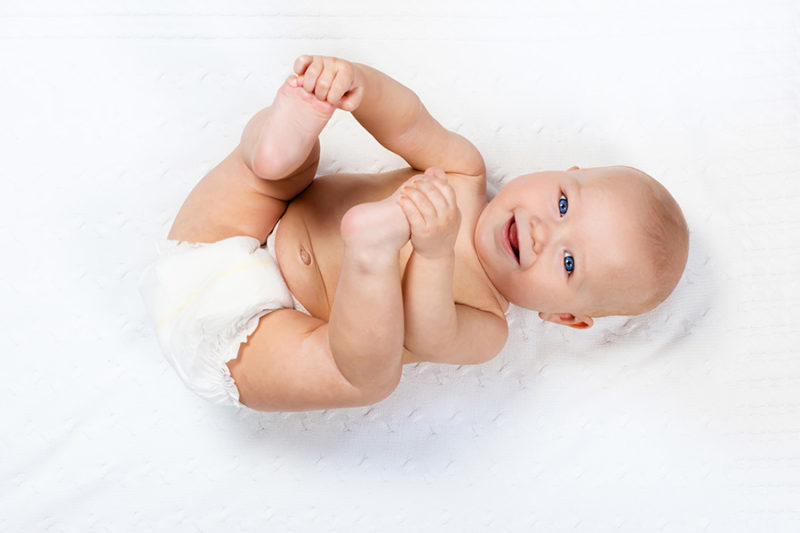
You probably wouldn’t think of composting plastic diapers, but even cloth ones shouldn’t go in your compost. Bacteria attach to diapers, and will infiltrate your entire compost pile. The last thing you want is finished compost full of dangerous bacteria spreading to the veggies and herbs you’re going to feed to your family.
18. Oil
Don’t dump cooking oil or butter into your compost pile. Doing so is a surefire way to invite pests to feast.
19. Dead Animals
You might be thinking that you can toss your dead pet goldfish or killed mouse from your cat into the compost, but don’t do it. For the same reason you shouldn’t toss meat or fish scraps into your bin, don’t try composting dead animals.
20. Diseased or Invasive Plants
You don’t want to perpetuate disease or inadvertently plant invasive plants all around your gardens as you spread your compost, so don’t put diseased or invasive plants in your bin.
A few healthy English ivy leaves won’t hurt anything, but clippings from Virginia creeper or diseased squash plants can quickly turn into a serious problem.
21. Walnuts
Walnuts contain juglone, which can be toxic to plants in high enough doses. You don’t want to go to all the trouble of creating compost, only to spread it around your garden beds and harm the plants you’re trying to nurture.
22. Cloth
The dye, chemicals, and other harmful substances in old clothing or linens can be harmful to a healthy compost. The only exception is un-dyed, un-processed, organic cotton. Feel free to shred and toss any of that you want.
23. Plastic
It’s obvious that plastics shouldn’t go into the compost bin, but what’s not obvious is how many things count as plastic. Polyester, nylon, rayon, and acrylic clothing are all plastic. Chewing gum contains plastic, as do Tetra Paks (those waxed carboard-looking containers fruits and juice come in). Most biodegradable packaging contains plastic as well.
24. Dryer Lint
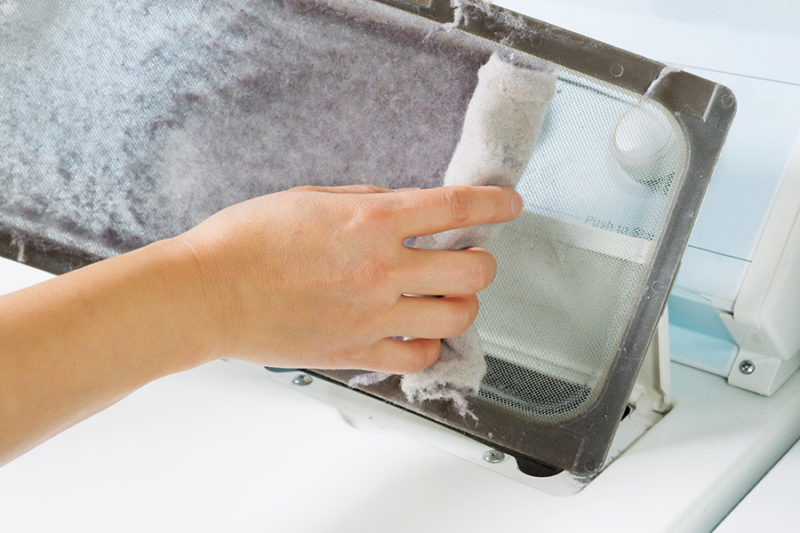
Some people say you can compost dryer lint, others say no way. You can give it a go and see how it does in your pile, but just know that your lint likely contains plastics (see above) unless you’re wearing cotton clothing.
Final Thoughts
As you can see, knowing what not to compost is just as important, if not more important, than knowing what is safe to compost. Adding only safe ingredients to your compost means you’ll end up with a healthy, nutrient-dense, finished compost that will enrich your garden and lead to a more abundant harvest.
